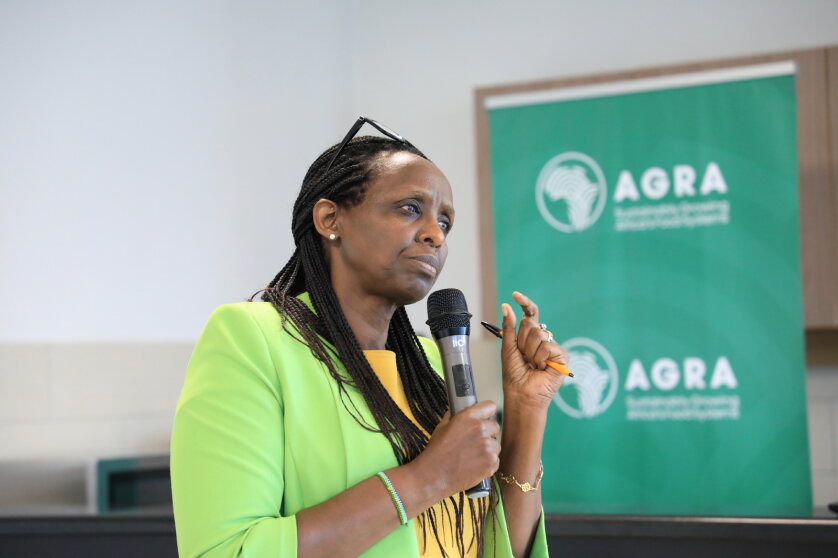Kilimokwanza.org reporter
No country can afford to ignore the critical need for adaptation and transformation in addressing food systems globally,” Cecil Haverkamp, Director of the FELD Programme and Co-Director of the Food/Land Team at the secretariat of the Sustainable Development Solutions Network, a global initiative for the United Nations, has said.
He delivered this message during an event convened by AGRA on November 2nd, where The Food and Land Use Coalition (FOLU) partners, including GAIN, UNSDN, and WRI, gathered at their headquarters in Nairobi, Kenya. The primary focus of the event was to foster discussions on collaborative strategies for achieving the Sustainable Development Goals (SDGs) and for adapting food systems and land use practices to combat climate change.
Haverkamp underlined the utmost importance of addressing food systems globally, emphasizing that no nation can afford to overlook the necessity for adaptation and transformation. He specifically pointed out the acute challenges faced by Africa, particularly regarding food security and the cost of living, underscoring the urgency of taking action on food systems.
One key challenge, as highlighted by Haverkamp, is the intricate nature of the food system, with no single government having complete control over all its aspects. Consequently, a coalition of organizations, including local stakeholders in Kenya and East Africa, has joined forces to expedite and deepen discussions regarding the transformation of food systems.
Haverkamp presented four compelling reasons for addressing food systems globally. Firstly, he drew attention to the escalating cost of food, resulting in severe hunger for hundreds of millions of people worldwide. Secondly, he underscored how food systems significantly contribute to biodiversity loss and environmental degradation. Thirdly, he emphasized their substantial role in climate change. Lastly, he pointed out the negative health impacts associated with unhealthy dietary choices.
In addressing these multifaceted challenges, Haverkamp stressed the need for context-specific solutions and the importance of considering local factors and scientific research. He also emphasized the invaluable role played by organizations like the SDSN in providing expertise during country-level discussions and in identifying specific policy instruments to promote sustainability in food systems.
The director also shed light on the funding challenge, highlighting the difficulties faced by many countries in the region when seeking international financial resources. He argued that some of the most effective solutions for transforming food systems may not necessarily require vast financial investments. Nevertheless, the lack of adequate funding presents a significant obstacle to effective policy implementation.
Haverkamp underscored the significance of open dialogue, cooperation, and the breaking down of silos among various sectors, including education, security, and poverty alleviation. He expressed optimism for the future, noting the abundance of capacity and intelligent individuals dedicated to the common goal of building more sustainable and health-conscious food systems.
